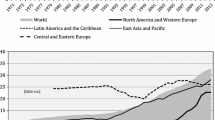Abstract
Despite a considerable increase in the number of graduates in Indonesia, they still remain a minute fraction of the labour force. The majority are in the professional, administrative, and clerical occupations, and employed by the state mostly in a civilian, some in a military, capacity. Ever larger numbers of the available graduates have been moving into state employment. The occupations mentioned are also the most highly paid, with the administrative far ahead of the professional and clerical.
The largest group of graduates had qualified in law, the social sciences, arts and sciences; the next largest in teaching. Health, agriculture, and the technological subjects of engineering and communications had attracted only a relatively small proportion.
Not more than half of the graduates were in occupations for which their studies were specifically relevant, and holders of the Bachelor (Sarjana Muda) degree were less likely than Masters (Sarjana) to be so employed. The largest proportion of graduates in related occupations had qualified in teaching and health, while the smallest had studied law, the social sciences, arts, and sciences, a few more the vocational subjects of agriculture and engineering. Selection for senior positions appears as important as training for specific occupations.
Teaching and health were also the two subjects with the highest proportion of graduates among the professionals. However, they were not particularly well represented among the better-paid administratives. Here, graduates in agriculture, engineering and the law, the social sciences, arts and sciences were much better favoured.
Some occupations show a certain concentration of graduates in specific subjects; in particular, half of the graduates in the professional group were trained as teachers. However, no occupation is the preserve of any one subject.
There were more Bachelor than Master graduates in all groups except the professional and administrative, where the reverse was the case. One may conclude that both these groups gave a certain preference to Masters, and were in turn the targets of those so qualified.
Similar content being viewed by others
Author information
Authors and Affiliations
Rights and permissions
About this article
Cite this article
Palmier, L. Occupations of Indonesian graduates. High Educ 11, 685–712 (1982). https://doi.org/10.1007/BF00139784
Issue Date:
DOI: https://doi.org/10.1007/BF00139784




